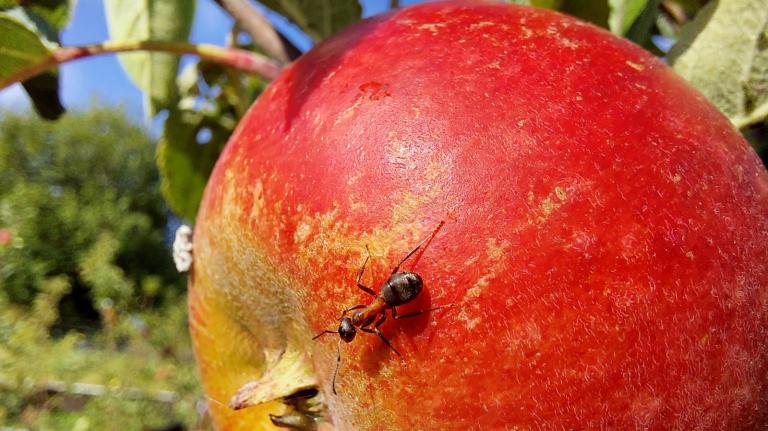The following is a response to a post by Ed Maltby, executive director of the Northeast Organic Dairy Producers Alliance.
—–

Londonderry, N.H.: These are difficult times for the organic dairy industry, and as we have demonstrated consistently for over a decade, we are deeply engaged in the effort to find solutions that balance escalating supply costs with the need to keep organic product prices within the average consumer’s reach.
Stonyfield has consistently fought for farmers’ interests, despite the pressures of the marketplace to reduce or hold prices for our yogurts. Over the past five years, the pay price we pay for organic milk has risen 34 percent, while Stonyfield has only raised the price of its 6-oz. yogurt 11 percent over the same period. We have endeavored to meet farmers’ needs, while finding savings in other parts of our business.
The fact is, despite our supplier costs rising dramatically over recent years, we have worked hard to maintain an affordable price for the consumer. This is a very tough balancing act, but at the end of the day, the greatest thing we can do is to grow the organic segment that benefits all the players — farmers, processors, and consumers. And Stonyfield has done just that, by converting 100 percent of our products to organic, increasing our purchases of family-farmer-supplied organic milk to over $60 million per year, and all the while investing in numerous strategies that will help our family farmers to thrive.
“Stonyfield Farm has been a trustworthy partner and has been diligent and unwavering in its support of organic dairy farmers,” says Jim Gardiner of Otselic, N.Y., organic farmer and Northeast Organic Dairy Producers Alliance board member.
“Organic has to work for everyone in the chain — from farm to table,” says Organic Valley/CROPP Cooperative dairy producer and Vermont farmer Regina Beidler, who supplies milk to Stonyfield Farm for its yogurt. “We need to figure out how to deal with the unprecedented increase in organic feed costs, and working together, I’m confident that we will.” Beidler adds, “Stonyfield Farm has always been an active and resourceful partner at the table working to help figure out how to make organic work for the dairy producer and the consumer.”
Stonyfield Farm will only purchase milk from family farms, a stipulation that is explicitly spelled out in its agreements with both its organic milk suppliers HP Hood and Organic Valley/CROPP. Stonyfield purchases all of the milk for its yogurts and frozen products from Organic Valley/CROPP Cooperative, and licenses HP Hood to sell and distribute Stonyfield Farm Organic Milk. Stonyfield does not directly source the organic milk for the Stonyfield brand.
We sympathize with farmers’ struggles with rising fuel, feed, and operating costs. As a processor, we are dealing with many of those same issues as well. Energy costs have risen dramatically, and we have invested significantly in implementing conservation efforts to hold these costs. On the other side, there has been an explosion of low-priced, competitive, private-label organic yogurts supplied by producers of non-family-farm milk, creating intense downward price pressure in the market. In short, there have been increased costs and pressures across the board, but we are not abandoning farmers, even as we face our own financial challenges.
Stonyfield Farm’s mission is to drive consumer support for organic family farmers while proving it is profitable to be an organic processor. We believe this is the only way to convert our food system to healthy and sustainable organic practices and ensure that farmers are treated fairly. Average pay price (Midwest prices) over the past decade for organic milk for Stonyfield Farm’s supplier of milk for its yogurt has steadily increased, compared to the “roller coaster” of prices paid to farmers for conventional milk.

In contrast to the extreme highs and lows of nonorganic-milk-farmer pay prices, Stonyfield Farm has never lowered the price it pays farmers for organic milk — even during periods of significant oversupply, such as this past year. It is this stable and steadily growing pay price that has made organic dairying attractive to many farmers.
And as we work toward a paradigm of sustainable food production, reducing the farmer pay price — a tactic favored by conventional dairy — is not an option.
Overall, no dairy processor has been more aggressive in supporting family farmer interests. Here is a list of some of Stonyfield’s organic farmer support initiatives:
- We were the nation’s first dairy processor to pay farmers not to treat cows with the synthetic bovine growth hormone rBGH.
- We have invested over $1.2 million in grants to farmers to assist with transitioning to organic.
- We started a loan program to assist farmers transitioning to organic. The fund was launched by a six-figure personal contribution from Gary and Meg Hirshberg, as well as with support from Stonyfield Farm and Organic Valley/CROPP Cooperative.
- We have provided tens of thousands of dollars in grants directly to farmers to improve sustainable farming practices.
- We have paid hundreds of thousands of dollars annually to fund workshops, trainings, and other assistance to farmers.
- With a grant of $450,000, we were the lead donor to the nation’s first land-grant organic dairy at the University of New Hampshire.
- In 2006, we hosted members of Northeast Organic Dairy Producers Alliance for a meeting at Stonyfield Farm, where we opened our financials to them to create a dialogue and increase understanding of the financial challenges facing everyone in the organic chain.
- Late last year, we converted 100 percent of our product line to organic, ensuring a steady demand for the organic farmers’ products.
In recent months, to address the unprecedented increase in organic farmer feed costs, Stonyfield has worked on several new initiatives to help dairy farmer profitability. These include increasing producer pay in 2008, funding a program with the Northeast Organic Farming Association of Vermont to provide energy audits and consulting to farmers to help reduce on-farm energy costs, and working with Organic Valley/CROPP Cooperative to find ways to reduce organic feed costs, such as long-term contracts with organic feed growers.
Everyone — suppliers, processors, and consumers — needs to understand there are enormous challenges in moving from a system where farmers have been undervalued to one where their vital role is both recognized and rewarded. We believe that the conversion to an organic, sustainable model is the only way to achieve this end.
About Stonyfield Farm
Stonyfield Farm, celebrating its 25th year, is the world’s leading organic yogurt maker, and it produces organic yogurt, smoothies, cultured soy, frozen yogurt, ice cream, and milk. The company advocates that healthy food can only come from a healthy planet. Stonyfield donates 10 percent of its profits to efforts that protect and restore the environment, was America’s first manufacturer to offset 100 percent of its CO2 emissions from facility energy use, and recently installed the largest solar array in New Hampshire to help power its production plant.


